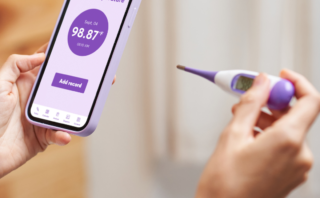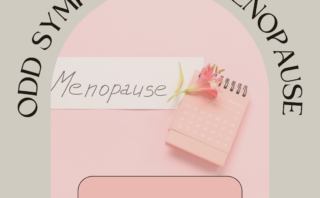How Do I Know if I have Low Progesterone?
Remember, symptoms are our check engine light letting us know we need to look further to find the reasons for our symptoms. Testing can help you confirm if progesterone is really low, suboptimal, or optimal. A functional lab test can give you the most information relating to our hormones and how they are functioning in our body. To learn more and to order your testing, you can go here.
What Exactly is Progesterone and How Would You Know if You Have Low Levels?
The hormone that governs the second half of our menstrual cycle is progesterone.  In order for production of estrogen, we need to ovulate to produce it.
In order for production of estrogen, we need to ovulate to produce it.
Once our ovaries release the egg what is left over is the corpus luteum and this is what produces progesterone.
Signs That You Might Have Low Progesterone:
- Period pain/cramps
- PMS
- Anxiety
- Mood swings
- Heavy periods
- Irregular or missing periods
- Cyclical headaches
- Brown period blood
- Spotting
- Fertility Issues
- 1st trimester miscarriage
Possibilities are that ovulation is not happening or you are ovulating but not producing enough progesterone.
Progesterone:
- Makes the uterine lining sticky for egg implantation
- Protects the uterine lining
- Has anti-anxiety benefits due to it’s relationship with releasing GABA – our natural relaxation mood chemical
- Has muscle relaxation effects (which may also be why if you are ovulating you could experience some constipation around ovulation because it’s slowing things down)
- Balances out estrogen levels
Because of these important roles in our body, if progesterone is low these can occur:
- Estrogen not balanced with adequate progesterone:
- PMS
- Period pain
- Bloating – especially pre-period
- Cyclical headaches
- Relationship with GABA, low progesterone can result in Anxiety/mood swings/harder to relax or wind down
- Lack of ovulation can result in
- Irregular cycle
- Fertility issues because of not releasing an egg for conception
- Low progesterone levels can play a role in 1st trimester miscarriage because not enough progesterone produced to maintain the integrity of the uterine lining
- Low thyroid function can also interfere with progesterone production. If you are struggling with heavy periods – first suspect possible low progesterone/low thyroid function
The only way to know for sure if this is behind those symptoms you are experiencing in by testing. Using the functional lab testing is the best way to know the most information about your hormones and how they are functioning in your body. You can order your testing here.
Let’s get some testing done and create your personal plan of action.





